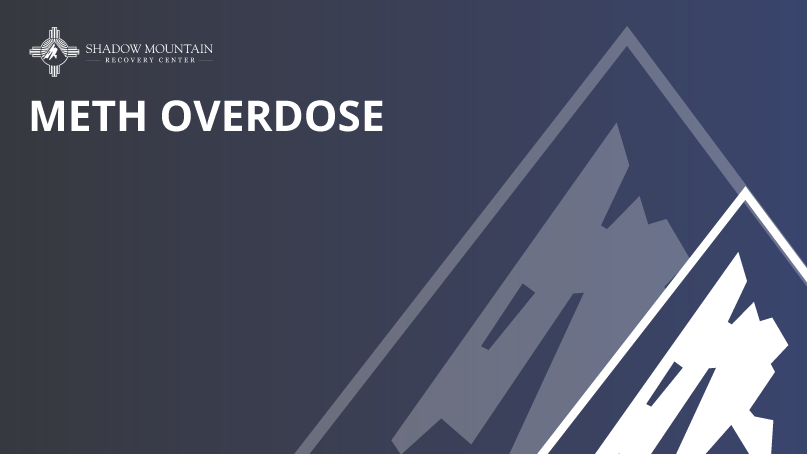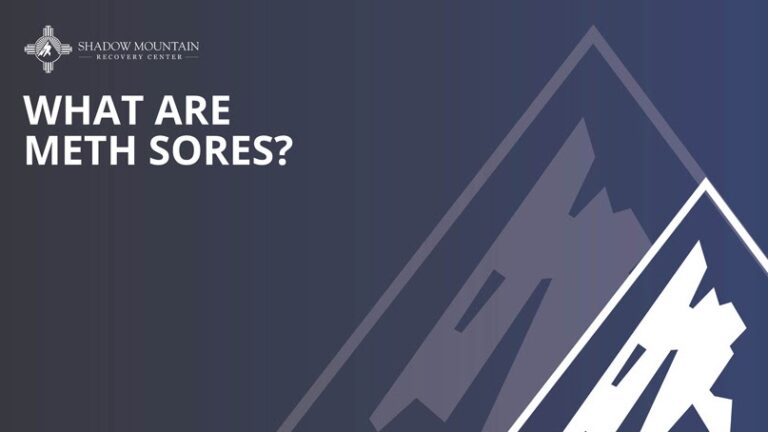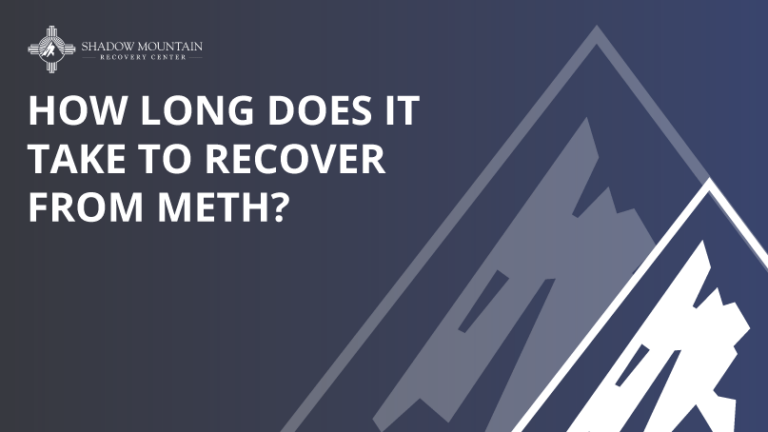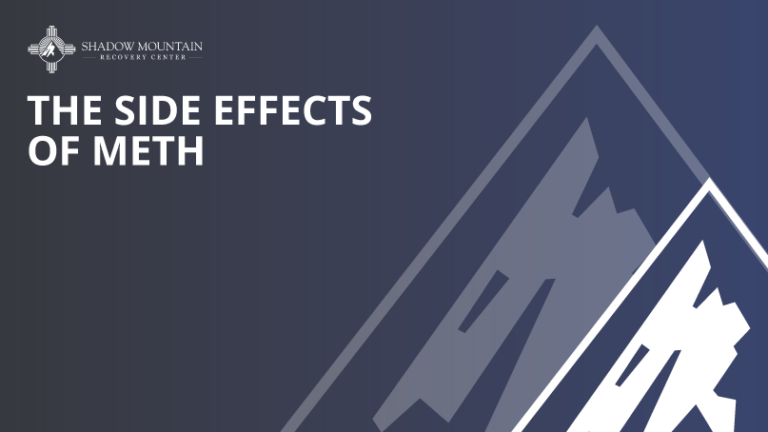Meth Overdose
In New Mexico, 36 percent of the total number of overdoses in 2018 were related to meth use. Methamphetamine is a powerful stimulant that creates euphoric effects and a significant energy boost in the short term but contributes to mental health conditions, organ failure, and dependency. Overdosing on meth can be fatal, but treatment for meth misuse can help a person achieve recovery and wellness.
What Is Meth Overdose?
Overdose is a condition caused by taking too much of a substance. Sometimes an overdose is accidental, meaning a person misunderstood the correct amount of a substance or medication. A deliberate overdose is when a person knowingly takes more than the recommended amount of a substance. A person may do this to increase the effects of the substance or as a form of self-harm. Meth overdose is when a person takes too much meth. Meth is a stimulant, meaning it speeds up the body’s functions. Common stimulants include caffeine and ginseng. These substances are safe and used every day. However, the stimulating effects of meth are significantly more significant than commonly used stimulants and will cause adverse effects when used.
Meth Overdose – Early Warning Signs
It can be difficult to accurately determine the correct dose of meth or other illicit substances. As a person’s tolerance increases, they will require more meth to achieve the desired effects. Furthermore, illicit meth can vary in potency. This makes the correct dose challenging to predict.
Some of the signs a person is experiencing a meth overdose are:
- Difficulty breathing
- Signs indicating heart attack or stroke (chest pain, confusion)
- Changes in blood pressure
- Seizures
- Elevated body temperature
- Kidney failure evidenced by dark urine
- Aggressive behavior
- Hyperactivity
- Stomach pain
- Paranoia
- Loss of consciousness
The Dangers Of Meth Overdose
During a meth overdose, it is common for a person to experience Methamphetamine psychosis. Methamphetamine psychosis is a condition where a person is not able to discern truth from reality. During methamphetamine psychosis, a person will likely see and hear things that are not there. Paranoia, or believing people are “out to get you,” is typical during methamphetamine psychosis. An estimated 36.5 meth users experience methamphetamine psychosis at some point.
Symptoms of methamphetamine psychosis include:
- Agitation
- Hallucinations
- Paranoia
- Speaking fast
- Being difficult to understand
- Jumping from topic to topic in conversation
- Beliefs that are detached from reality
- Itchiness described as bugs are crawling on a person’s skin
A heart attack often results from a meth overdose. Meth use raises a person’s blood pressure, narrows blood vessels, and weakens the heart muscle. In addition, new meth users are not immune to heart failure as a result of using meth due to their tendency to ingest too much too quickly. Individuals who use meth are 27.5 times more likely to experience sudden heart failure.
Meth overdose can cause a person to experience a stroke. A recent study of 370 meth-related overdoses found that 98 of those instances included stroke. This happens because meth use harms the blood vessels in a person’s brain.
Renal failure, or the inability of the kidneys to filter a person’s blood effectively, is an effect of a meth overdose. Renal failure leads to a dangerous buildup of waste in the body. Without intervention, renal failure is life-threatening.
How to Help in the Event of a Meth Overdose
A person can survive a meth overdose, but if someone you know has overdosed on meth, you must act quickly. Your first step will be to call 911. The 911 dispatcher will likely ask you questions that will aid first responders in administering treatment. For example, they will want to know things such as what substance the person took and how much of it. In addition, they may have health-related questions such as “what is the person’s weight?” or “do they have ongoing health conditions?”.
While waiting for help to arrive, do your best to keep the person who has overdosed awake. Engage them in conversation or use appropriate physical contact. If a person passes out, they risk vomiting and choking to death, so lay them on their side to prevent this outcome. Meth overdose can cause a person to have a seizure. When a person experiences a seizure, it is essential to support their head to prevent injury. You should not try to restrain their arms or legs but allow the body to move freely. A common myth related to seizures is that a person can bite off their tongue and choke on it. This is not true.
Furthermore, many try to put something in a person’s mouth to prevent this. Do not put anything in a person’s mouth. Doing so can cause damage to their jaw or choking.
Who Is at Risk of Overdosing From Meth
No amount of meth use is safe. Meth is a substance that creates many short-term and dangerous long-term effects. Someone who uses meth is at risk of experiencing an overdose and potentially death. Due to the inconsistent potency of illicitly purchased meth, it is difficult for even experienced meth users to accurately gauge their dose. This means accidental overdoses are common. As a person’s meth use continues, they build a tolerance to meth and risk taking a lethal amount. Even if a person does not experience an overdose, it is common for meth use to create health complications such as organ failure or Parkinson’s disease that will lead to death over time.

The Risk Factors of Meth Overdose
There is no single factor that causes a person to use meth. Many things can contribute to the development of a substance use disorder and, ultimately, an overdose. Factors that contribute to meth use and other substance use issues are called risk factors. Examples of common risk factors are:
- Mental health conditions
- Family history of substance use
- Substance use in peer group
- Poverty
- Homelessness or inadequate housing
- Inadequate access to education
- Abuse
- Neglect
- Social isolation
- Problem behaviors in childhood
- Understanding the Common Signs of Meth Overdose
If a person is amid a meth overdose, they may seem to have a burst of energy, excitable, challenging to follow in conversation, or hyperactive. Often, they enter an altered mental state characterized by agitation, aggression, paranoia, and hallucinations. If a person demonstrates these characteristics and has been using meth, the best thing you can do is call for help.
What Are the Treatment Options for Meth
If someone overdoses on meth, they will be taken to the emergency room for treatment. Emergency room treatment often involves:
- Checking vital signs
- Purging meth from a person’s system with activated charcoal or a laxative
- Testing blood and urine
- Giving a person oxygen
- Tests that check the functionality of vital organs
- IV fluids
- Medications to treat complications from meth use
When someone seeks professional rehabilitation for meth use, they will first enter detox. Detox is a period of around seven days when a person is treated for withdrawal symptoms. These are symptoms associated with the end of substance use. When a person uses meth, their body adjusts to the presence of the stimulant. Withdrawal symptoms are how the body feels when that stimulant is removed. Meth withdrawal symptoms often include:
- Headaches
- Dehydration
- Fatigue
- Insomnia
- Anxiety
- Psychosis
Detox is most successful when a person is in a treatment center where they can be made comfortable, and their symptoms can be treated by staff who are available 24/7.
After detox, many choose to participate in residential treatment. This means they will live full-time at a treatment center while receiving treatments that will help them address the causes of their meth use and find recovery. Some choose to participate in outpatient treatment, which gives a person access to the same treatment options as residential care but allows them to live at home and commute to the treatment center for care.
The team at Shadow Mountain Recovery Centers is excited to discuss individualized treatment options with those seeking recovery from meth use. Our team is equipped to provide quality care that will allow you to meet your recovery goals. Contact us today at 505-657-2117 to learn more about treatment for meth use.
FAQs About Meth Overdose
Don’t wait another day to get the help you or a loved one needs. Call us now.









